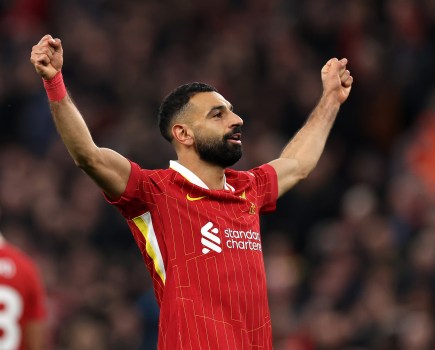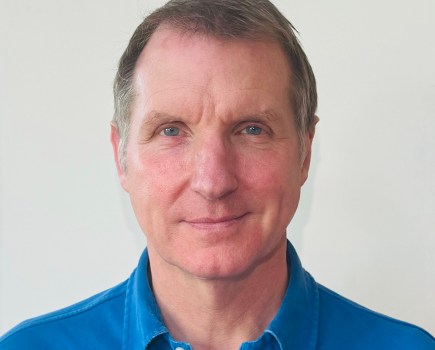So you’ve definitely decided that this is to be your final season. That’s a real pity.
GHEORGHE HAGI: Pity or not – my age doesn’t give me a choice. I now have to get used to the idea of life without playing football. That’s obviously going to be difficult, but, on the other hand, it’s much better to say goodbye while I am still able to play for 90 minutes. I’d rather that than be relegated to sitting on the bench and becoming an embarrassment to the fans.
Do you feel fatigued?
I see players of 23 or 24 who suffer from the crazy pace of the game, so how could I feel otherwise, at 36?
How far can Galatasaray go in the Champions League?
If we win the group, we will play in the Final, at the San Siro stadium. I have no doubt of that. We are at the peak of our game, we’re in great shape, we’re playing very well.
Are you sure the team are up to playing in a Champions League Final?
A year ago, we knocked out Milan. This year, we’ll be playing the Final on their home turf. It’s destiny – it’s all pre-ordained.
This Galatasaray seem to be a more adaptable team, compared to how it wasduring (coach) Fatih Terim’s time.
Terim wasn’t the issue – the issue is that, before, nobody knew who or what we were, so we used to be able to surprise everyone. Nowadays, other teams studyus, they fear us, and so they develop tactics targeted against the way we play. But, in turn, we have changed and we now consider that anything is possible, because we have plenty of invaluable experience of playing at the highest level.
How is Terim regarded?
Here in Turkey he is considered a great man. We are all fans of his here. In five months he built up a phenomenal side at Fiorentina. Name me another foreigner capable of that. He’s extraordinary – he could coach any side.
You are an idol for many youngsters, but when you were growing up, who were your heroes?
When I was a child we did not get to see many international games, but even so, I was aware that the greatest player was Johan Cruyff. When I went to Barcelona in 1994, when he was then coach, I went because of him. It was great, even though I didn’t always get a game. Working with him, I fulfilled my potential. He was amazing – the best. The Romanian who impressed me as a child was (Anghel) Iordanescu, a creative player, and left-footed too. Later, he was my coach at Steaua and then in the national side – an indescribable feeling for me.
In 1990 you left Romania and were able to see all the great international players. Who, in particular, inspired you?
At 25, you can only really have yourself as a role model. You can only seek to improve your own game.
Is there anything that you haven’t liked about the past 20 years in football?
Today, you seem to be considered good only if you can run fast, or are physically strong. What about individual skills? But slowly, slowly, I can see a new move back towards the basics. I think Italy is still the best model, with the best-organised football and the best all-round game. No one prepares for a game like the Italians do. Perhaps theresults are not so very different to the way they were a few years ago – in football you either win or you lose; but believe me, the whole world still looks on with envy at Italian football. That’s agood form of envy, because everyone is paying attention and wants to learn from Italian football.
Turning to Galatasaray, who would you say was the better forward, Mario Jardel or Hakan Sukur?
That’s a delicate question. Jardel, Sukur – these are the players who score. But then, there are great moments for every player. Jardel scores all the time at Galatasaray, but (former Inter coach) Marcello Lippi didn’t want him because, so he said, he didn’t move much. However, Lippi took Hakan Sukur, who certainly can move but who doesn’t score as much as Jardel. The goals Sukur has scored have been crucial, but, then again, he isn’t consistent, which is vital for an attacker. If Hakan can play with consistency, you’ll see him scoring as he did when he was at Galatasaray.
Why were you never named European Footballer of the Year?
Because I was born in Romania.
Is that such a big deal for the judges?
It’s important enough. Up to the age of 25 I played for a very big club, the biggest in Europe in its time – Steaua Bucharest – but the fact that this is a Romanian team counted against me.
Your compatriot Adrian Mutu cost Inter œ1.7million; Shevchenko of Ukraine cost Milan œ15m; and Yugoslavia’s Mateja Kezman cost PSV Eindhoven œ10m. Why such big differences in price?
Because Steaua is no longer a big club. People come to Romania, they see a player just once and don’t get a true picture of him. So they take him on as some kind of promising player, or a risk, and this type of player costs comparatively little. Shevchenko and the others from Dynamo Kyiv played in the Champions League, so it was easy to study them and evaluate their prospects. But it’s one thing to see a player in an international competition and quite another to see him playing in his home country’s league. If Steaua were to shine again in Europe, the price of Romanian players would go up again.
Is such a thinglikely or possible?
That depends entirely on the presidents of the Romanian sides – on their plans.
It’s sad news that you don’t want to play with the national team any longer.
I think, having played for Romania for 17 years, I’ve earned the right to say: “That’s enough.” I canno longer play for 90 minutes every three days and to play anything less wouldn’t interest me. In Romania, they are so used to seeing a brilliant Hagi, I wouldn’t want to spoil the image.
They’ve been busy trying to find your successor. Who do you think that could be?
There are many great young players. I won’t name anyone because that might make them big-headed.
Go on, give us one name.
OK, Alin Stoica.
How can someone make himself the new Hagi?
By being patient and tenacious, and by finding a team that believes in you, that gives you a regular place in the side, that helps you grow and keeps you on an even keel. That’s the luck that I had in playing for Steaua – a great club and a great team.
Let’s talk about Turkish football. There are now some crazy salaries being paid.
Yes, but you also see those in Italy and Spain. And I believe David Beckham’s projected new contract isn’t bad either. There are ‘normal’ salaries in Turkey too.
Would you recommend a top player to come to a Turkish club?
I don’t see why not. A lot of progress has been made in Turkey. When I arrived five years ago things were very different. Today, the clubs are much better organised.
Who have been the biggest influences on Turkish football?
The Germans, without a doubt – the first foreign players and coaches came from there.
After 20 years of trophies, do you have any regrets?
None. You could talk of sadness – but not regrets.
Not even having chosen to sign for Real Madrid in 1990?
No, because at that time Real was the right choice to make, even though I had plenty of other offers.
And what would be your biggest sadness?
Not having played in a big Italian side. Milan wanted me, and others too. Your farewell game will be on April 23.
They say that you, the so-called Maradona of the Carpathians, haven’t invited the real Maradona.
I haven’t decided anything yet.
What are your plans for when you stop playing?
To be a coach.
Anywhere in particular?
No, I haven’t thought about it. In any case I don’t know who would want me.
Would you want to start off coaching a club’s youth team?
No. I believe that once you’ve reached a certain level, you mustn’t go below it.
*This is an extract from an exclusive World Soccer interview with Gheorghe Hagi. The full interview is available in the April 2001 issue of World Soccer.






